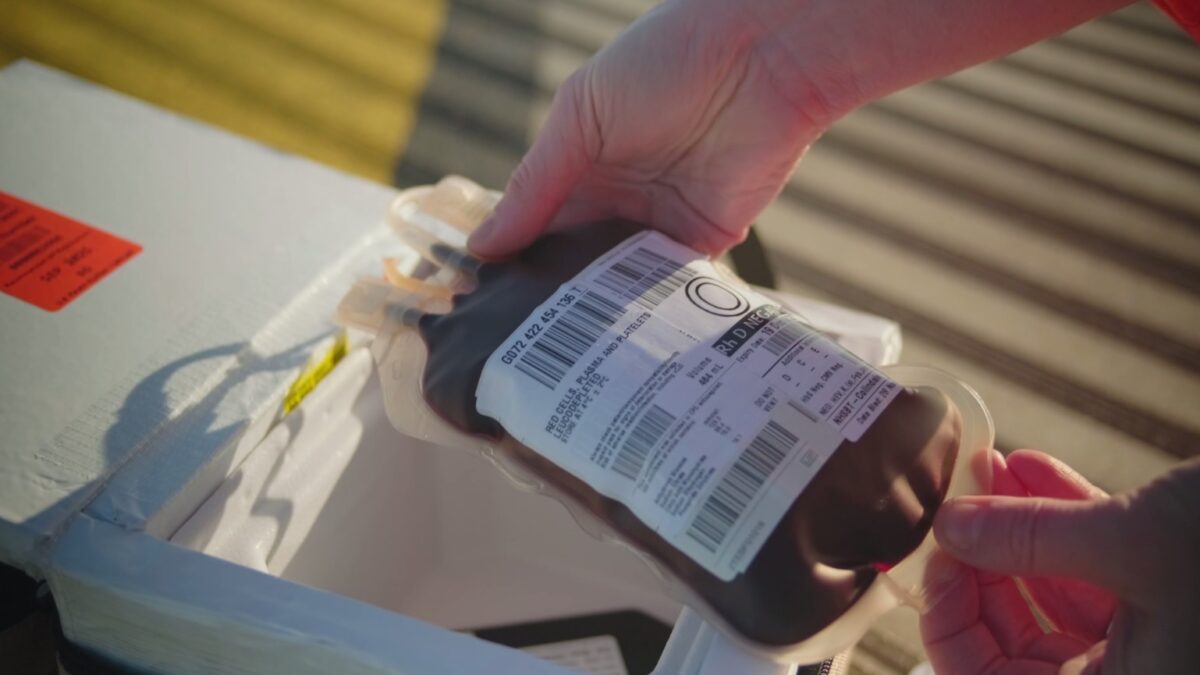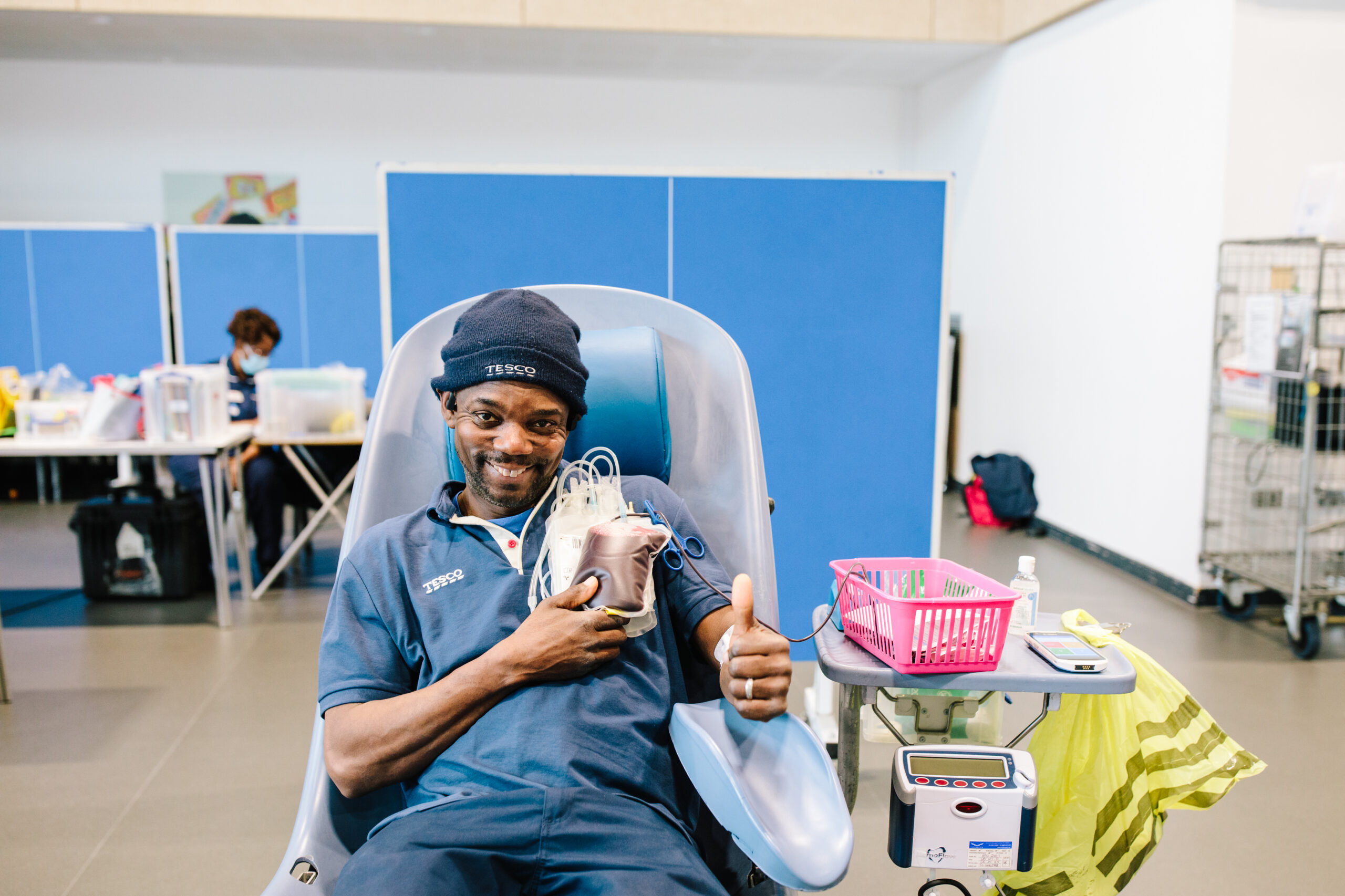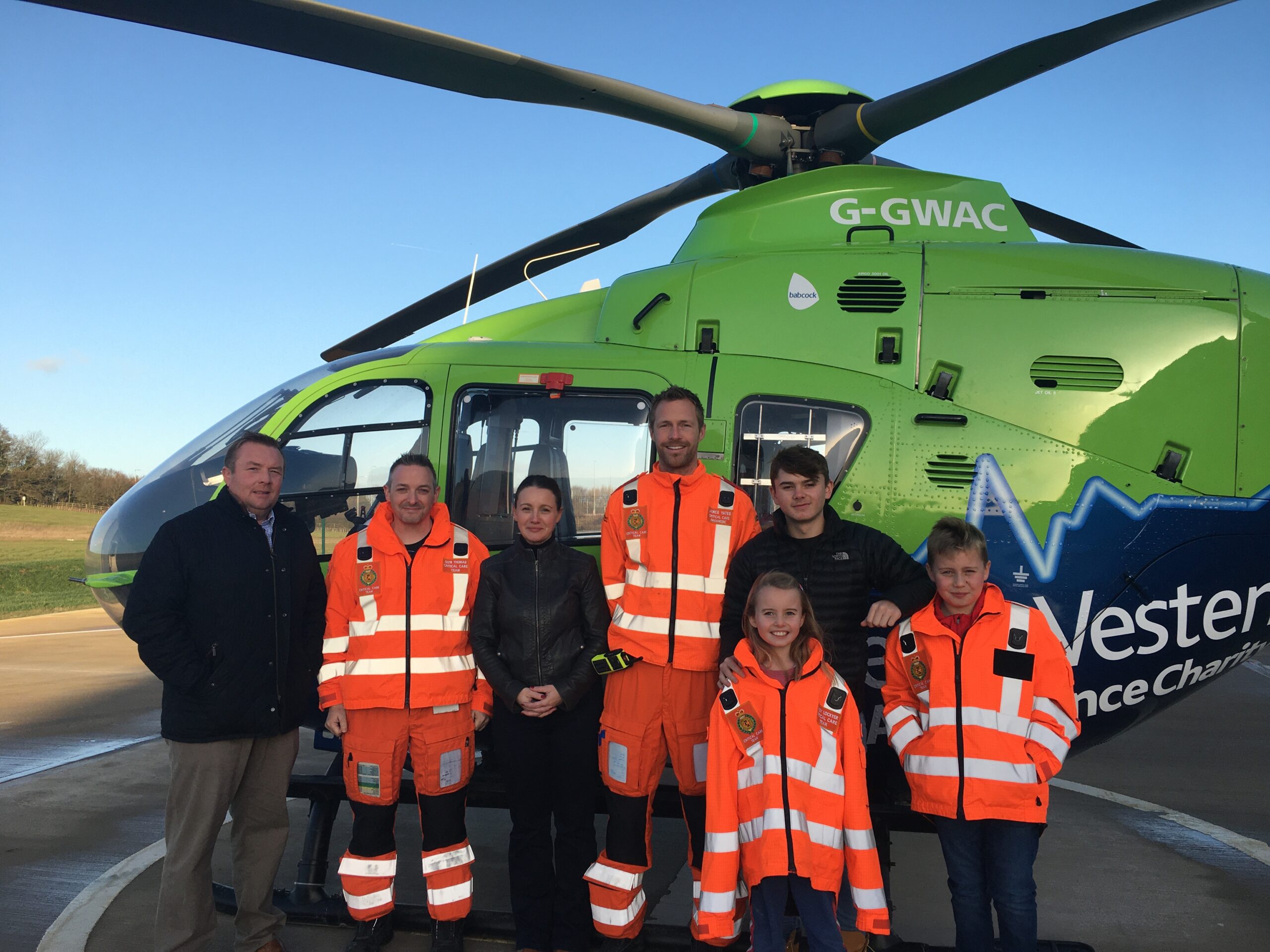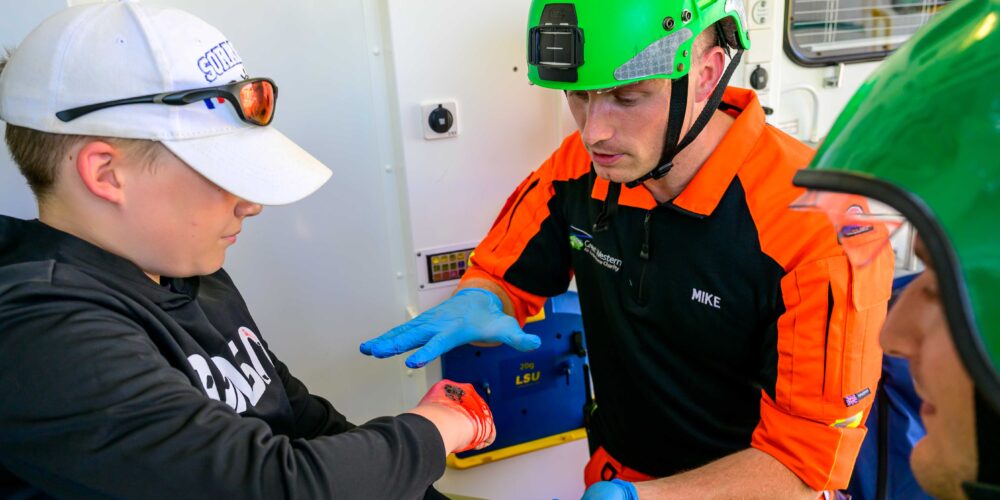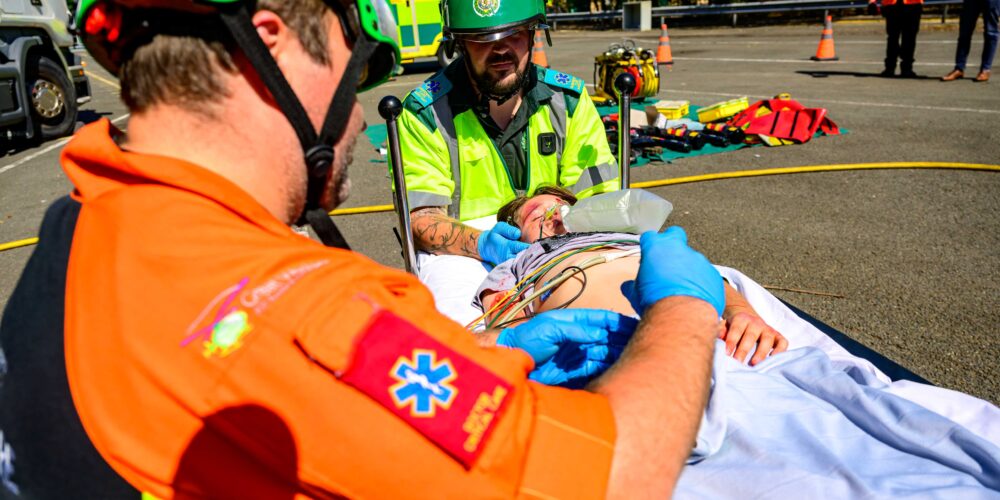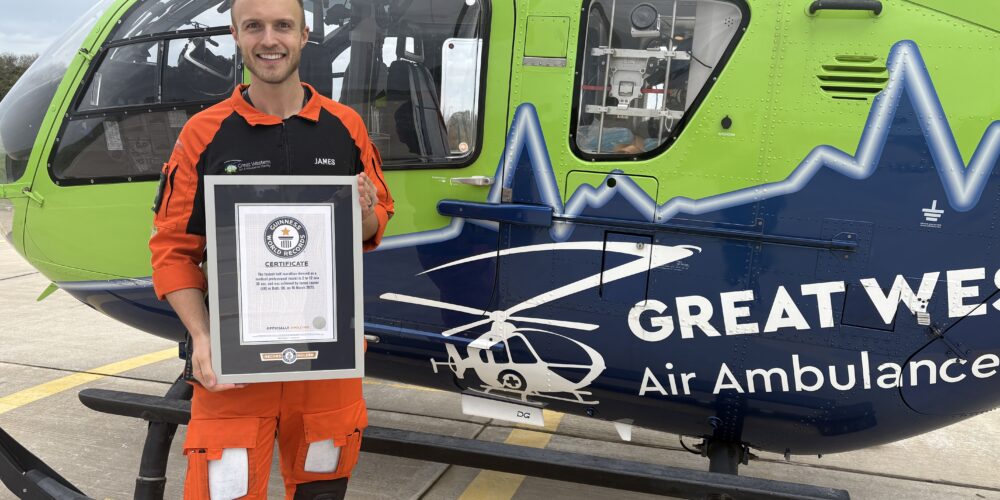
The arrival of Charlie Bear
December 9, 2022
Gloucester Boutique
December 19, 2022When someone suffers a major trauma, sometimes their best chance of survival comes down to the medical intervention they receive at the scene. Pre-hospital blood transfusion can be a vital procedure to manage significant blood loss and save a patient’s life.
That’s why Great Western Air Ambulance Charity (GWAAC) is delighted to participate in a two-year nationwide Whole Blood Trial, along with nine other air ambulance charities. The trial will assess whether giving whole blood (WB) at the scene of a major trauma improves a patient’s chance of survival.
Led by NHS Blood and Transplant, the trial began on 15 December 2022 with different air ambulances joining at different stages. GWAAC's participation in the trial started on 30 October 2023. Since then, and at the time of writing (11 June 2024) we can report that we have given blood transfusions to 24 patients and administered a total of 60 units of blood product (including whole blood, packed red cells, fresh frozen plasma and LyoPlas). We’re proud to have this opportunity to make a real difference in the lives of our patients and beyond. Our exposure to a large number of people who experience severe traumatic injuries provides an opportunity to assess the benefits of the new WB product.
We are one of the first air ambulances in the country to use WB in emergency pre-hospital blood transfusions.
Whole blood transfusions vs standard care
When a donor gives blood, their WB is split into separate components (red blood cells, plasma, and platelets) as this makes it much easier to store.
Current practices for pre-hospital blood transfusions vary across the country. Currently, the GWAAC Critical Care Team provides people in urgent need of blood with:
- Red blood cells (important for carrying oxygen around the body)
- Fresh frozen plasma (contains essential proteins to help blood clot)
The missing part of the blood is platelets (small cells that are important for blood clot formation). Platelets are currently difficult to carry on air ambulances due to their storage requirements, but they play a crucial role in blood clotting.
Although the military has been using WB for a while, in UK civilian practice it has, up until now, only been possible for air ambulance teams to carry individual blood product components (and no platelets at all).
Work is underway to develop a complete WB product that contains all the individual components of blood that can be stored and carried on air ambulances.
This trial aims to establish whether the delivery of WB to patients (containing red cells, plasma, and platelets together) will be better than only administering packed red blood cells and plasma, as separate transfusions.
Major trauma kills more than 5,400* people every year in the UK; GWAAC gets called to roughly 1,000 trauma cases per year. Uncontrolled bleeding accounts for a significant proportion of major trauma deaths. And a blood transfusion at the scene plays a vital part in supporting a patient until they get to a Major Trauma Centre.
There have been early indications that giving WB could reduce mortality rates by 11% in the 30 days following major trauma; this is a significant difference and one that we are very excited about.
It’s also thought that replacing blood lost with WB, could reduce the risk of infection and other complications.
Other benefits could include a quicker transfusion process, allowing air ambulance crews to:
- Deliver other time-critical treatments
- Move patients to a hospital quicker
- Require fewer people and equipment
- Carry a lighter load
In December 2022 at the start of the trial, GWAAC's then Medical Director, Dr Ed Valentine said:
“GWAAC was one of the first air ambulances in the South West of England to start carrying blood products that could be used at the roadside to treat critically ill and injured patients. This ground-breaking trial will see GWAAC continuing to be at the forefront of delivering cutting-edge care to patients suffering major trauma and life-threatening bleeding. Our team of highly experienced pre-hospital Critical Care Doctors and Specialist Paramedics is hugely excited to be taking part in this national study which we hope will lead to improved patient outcomes and more patients surviving after suffering very serious injuries”
*NHS Blood and Transplant
Making a difference
To summarise, GWAAC, and the other nine participating air ambulance charities, will assess whether a pre-hospital WB transfusion will:
- Significantly improve the outcome for patients
- Be a safer procedure than current practice
- Be more efficient and cost-effective
And the really exciting part is, if the trial demonstrates that pre-hospital WB transfusions are effective, a new procedure could be implemented across the whole of the UK.
“Not only will this trial develop GWAAC’s clinical skills by implementing new procedures and interventions, but our actions and findings over the next few years will influence the standard of pre-hospital care nationwide, and perhaps globally.”
Anna Perry, CEO, Great Western Air Ambulance Charity
In April 2021, we celebrated five years from when we first started carrying blood products and saving lives with transfusions. We’re now looking to improve our procedures even further to give more patients like Ollie the best chance of a full recovery. Knowing that our involvement in this trial could have a nationwide and even global impact is very humbling.
- Croydon blood donor Roger Campbell
- Blood bags type O negative
- Ollie Berry in hospital
- Ollie Berry with the crew that treated him
- Ollie Berry today
“GWAAC was one of the first Air Ambulances in the South West of England to start carrying blood products that could be used at the roadside to treat critically ill and injured patients. This ground-breaking trial will see GWAAC continuing to be at the forefront of delivering cutting-edge care to patients suffering major trauma and life-threatening bleeding. Our team of highly experienced pre-hospital Critical Care Doctors and Specialist Paramedics is hugely excited to be taking part in this national study which we hope will lead to improved patient outcomes and more patients surviving after suffering very serious injuries”
